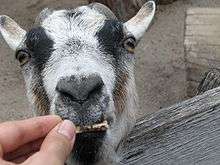Zoos

Zoos are where you can see animals in captivity.
Understand
Zoos are artificially created enclosures where a traveller can see captive wildlife. Generally, zoos have an entrance where you pay, and behind the entrance are several trails that lead to the different locations of particular kinds of animals. Zoos can vary from somewhat compact affairs with modest enclosures to large expanses that are akin to small reserves in approach.
Whilst animals commonly associated with zoos include species from African habitats (such as elephants, lions, giraffes, monkeys, and apes.) because Africa has a diverse range of large mammals that until the modern era were unknown to much of the western world, many zoos have attempted to better reflect bio-diversity, by including species from a wider range of habitats.
Zoos are popular family destinations, because children like to see all the different kinds of animals.
Many western zoos are involved with or aim to support conservation efforts, and because they are responsive to animal welfare concerns, they have implemented more appropriate enclosures or animal care practices, openly giving explanations for the approaches taken. For zoos in developing countries where animal welfare organizations are few and far between, however, poor animal accommodation and questionable practices remain an active concern.
A safari park or wildlife park is a facility larger than a zoo, usually a drive-through attraction.
Conversely, a petting zoo is a small local attraction in which a few domesticated animals (such as goats) live in small, often overcrowded pens. Most are privately-owned and not notable outside their local communities.
Destinations
United States
- Bronx Zoo
- Oakland Zoo
- San Diego Zoo
- San Francisco Zoo
- Toledo Zoo.
United Kingdom
Larger reserve-style zoos
- Whipsnade Wild Animal Park
- Longleat Safari Park
India
- National Zoological Park, Delhi
Stay safe
Even though the animals are captive, doesn't make them tame or domesticated, and a degree of caution is still advised. A captive lion or tiger still has all the killer instincts of its wild counterpart, even if it seems somewhat docile. Responsible zoos have obvious barriers, warning signs (and other measures) around the enclosures of certain animals with good reason, but still be extremely careful when it comes to potentially dangerous wildlife at zoos.
Respect
Do not harass the wildlife. The mighty king of the jungle has been taken captive for your amusement, but that's no excuse to torment the poor beast.
There are huge questions around animal ethics, both for the operators of zoological gardens and for their patrons.
Feeding captive animals

Captive animals should ideally be on a set diet. Do not feed them without the handler's permission. This is not only the case at zoos, but at other places where there are captive animals as well. There are a number of reasons for this but amongst them:
- The first is simple, the animals get fed in a certain place by people who shouldn't feed them. The animals realize where they can get extra food and then decide to just stay there to get food. The animals become habituated and dependent on those who come to the zoo, and soon the animals are no longer searching for their own food. If no-one comes and no-one feeds them, they could die.
- A second is that the set diet will ideally reflect what a particular species would encounter in their natural ecological range. A wild lion is not necessarily going to get prime steak (or sponge trifle) on a regular daily basis. Zoos, especially those involved in conservation and re-introduction programmes, have invested the time and research necessary to develop appropriate feeding programmes, and would prefer these aren't upset by incautious visitors.
Some establishments, especially petting zoos, will allow visitors to feed the animals; the zoo will provide the food, probably at an additional price. The feeling of a barnyard animal eating food out of your hand is delightful.